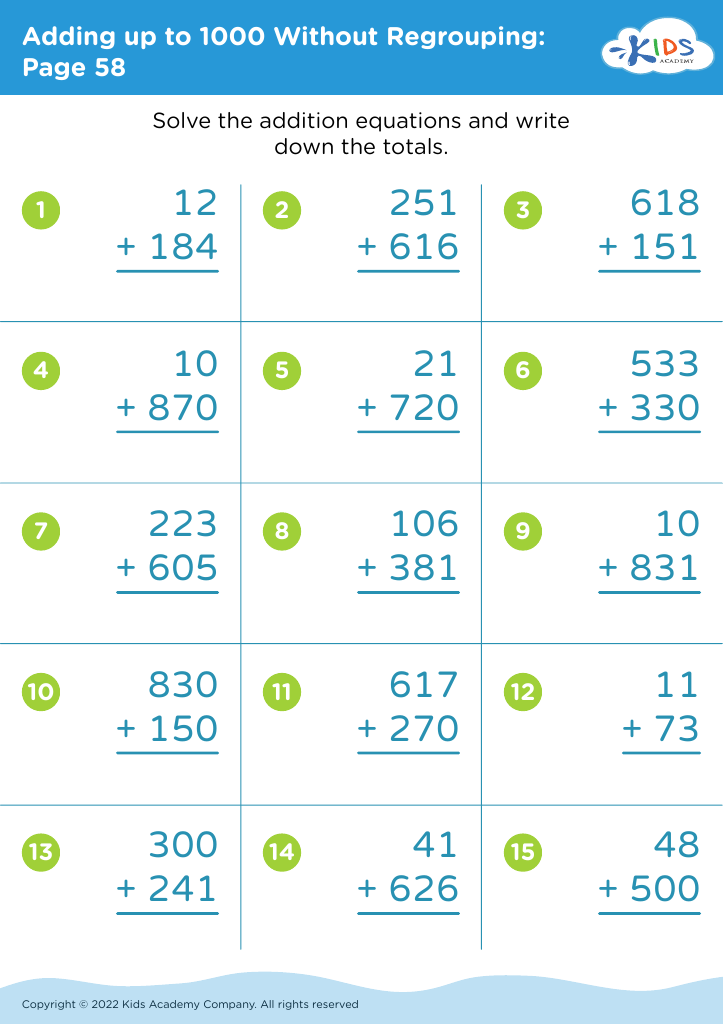Counting practice Grade 3 Adding up to 1000 Without Regrouping Worksheets
4 filtered results
-
From - To
Our 'Counting Practice Grade 3 Adding up to 1000 Without Regrouping Worksheets' are designed to help young learners solidify their addition skills. Catering to third graders, these printable worksheets provide engaging practice material to enhance students' ability to add numbers up to 1000 without the complexity of regrouping. Each worksheet is thoughtfully created to reinforce counting skills in a fun and educational manner, ensuring learners build a strong arithmetic foundation. Perfect for classroom activities or at-home practice, these worksheets empower children to confidently tackle addition problems, developing their mathematical abilities and boosting their overall confidence.
Counting practice in Grade 3, specifically adding up to 1000 without regrouping, is crucial for several reasons:
-
Foundation Building: This practice lays essential groundwork for future mathematical concepts. Mastering simple addition ensures that children have a strong numerical foundation before tackling more complex operations like multiplication and division.
-
Numeracy Skills: Counting and adding fosters numeracy, which is the ability to understand and work with numbers. This skill is critical not just in math, but in daily life—helping to make sense of time, money, measurements, and problem-solving scenarios.
-
Confidence Boost: Success in math at an early age contributes to a child's overall confidence. When children are comfortable with basic arithmetic, they are more likely to approach more challenging math problems with a positive attitude.
-
Cognitive Development: Addition helps in enhancing cognitive functions like memory, logical reasoning, and critical thinking. Engaging with numbers stimulates brain development and promotes intellectual growth.
-
Alignment with Curriculum: Consistent practice aligns with educational standards, ensuring that children meet specific academic benchmarks and are prepared for the next year’s learning goals.
Encouraging this practice not only supports academic success but also prepares children for a more mathematically literate future. Parents and teachers should therefore prioritize and value these early learning opportunities.

















